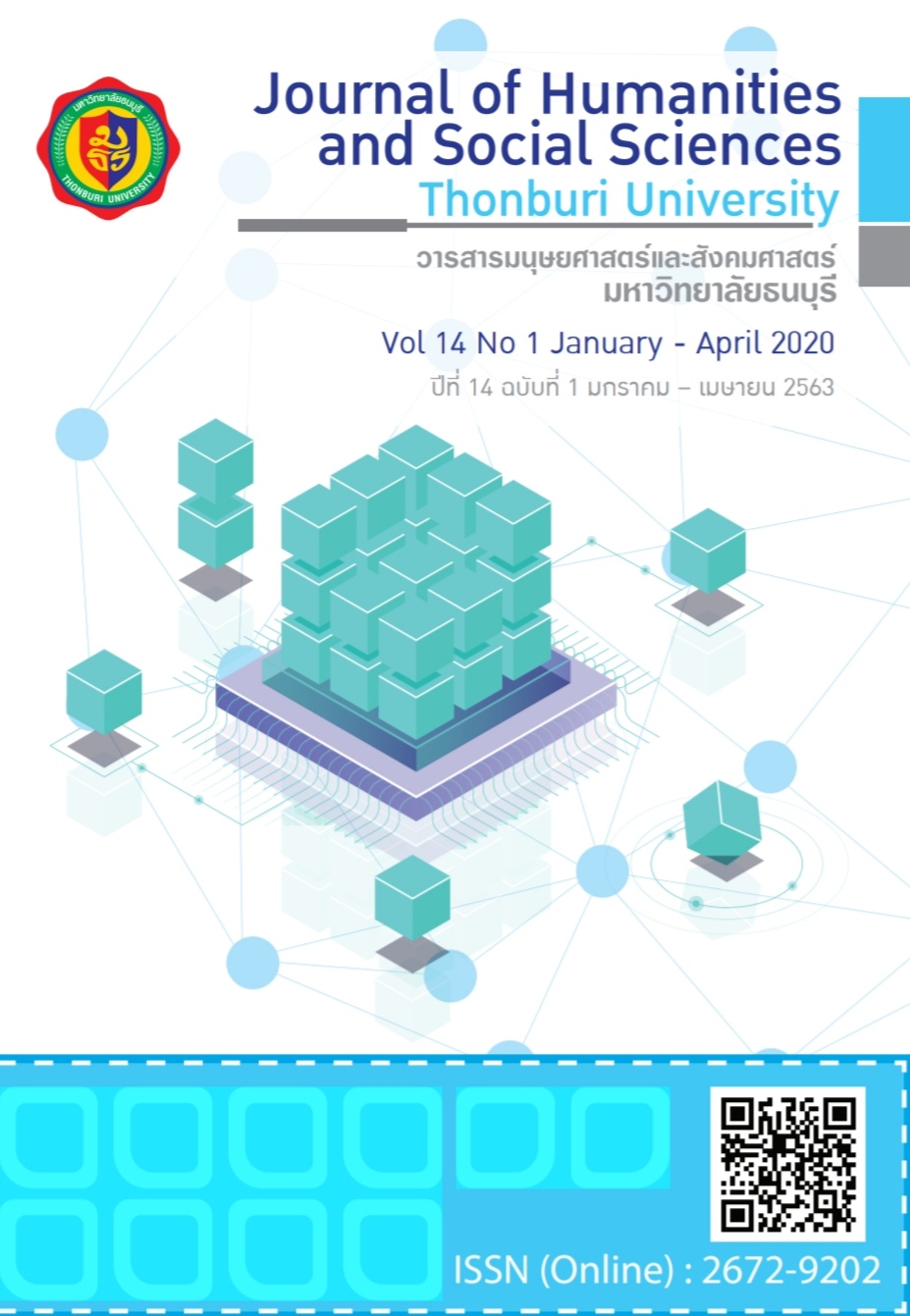การศึกษาองค์ประกอบ ความต้องการ และความจำเป็นในการส่งเสริมทักษะการคิดสร้างสรรค์ของนักศึกษาวิชาชีพครู
คำสำคัญ:
ทักษะการคิดสร้างสรรค์, การเรียนรู้ในศตวรรษที่ 21, นักศึกษาวิชาชีพครูบทคัดย่อ
การวิจัยนี้มีวัตถุประสงค์เพื่อศึกษาองค์ประกอบและความต้องการจำเป็นของการคิดสร้างสรรค์ของนักศึกษาวิชาชีพครู โดยการวิจัยครั้งนี้ดำเนินการ 3 ระยะ ได้แก่ ระยะที่ 1 ศึกษาเอกสาร งานวิจัย ข้อมูลเชิงประจักษ์ และวิเคราะห์องค์ประกอบทักษะการคิดสร้างสรรค์ของนักศึกษาวิชาชีพครู แหล่งข้อมูล ได้แก่ ฐานข้อมูลสืบค้นจำนวน 4 ฐาน ได้แก่ Google Scholar Research Gate ProQuest Springer แหล่งข้อมูลเชิงประจักษ์ คือ จุฬาลงกรณ์มหาวิทยาลัย สถาบันเทคโนโลยีพระจอมเกล้าเจ้าคุณทหารลาดกระบัง โรงเรียนลำปลายมาศพัฒนา และผู้เชี่ยวชาญด้านการคิดสร้างสรรค์ จำนวน 5 ท่าน เครื่องมือวิจัย ได้แก่ แบบประเมินความเหมาะสมขององค์ประกอบทักษะการคิดสร้างสรรค์ของนักศึกษาวิชาชีพครู ระยะที่ 2 สำรวจความต้องการในการส่งเสริมทักษะการคิดสร้างสรรค์ของนักศึกษาวิชาชีพครู โดยมีกลุ่มตัวอย่าง คือ อาจารย์ผู้สอนรายวิชาชีพครู สำหรับตอบแบบสำรวจสภาพการเรียนการสอนส่งเสริสำรวจความต้องการส่งเสริมทักษะการคิดสร้างสรรค์ของนักศึกษาวิชาชีพครู เครื่องมือวิจัย ได้แก่ แบบสำรวจความต้องการส่งเสริมทักษะการคิดสร้างสรรค์ของนักศึกษาวิชาชีพครู และระยะที่ 3 วิเคราะห์ความจำเป็นของการคิดสร้างสรรค์ของนักศึกษาวิชาชีพครู แหล่งข้อมูล ได้แก่ มาตรฐานวิชาชีพครู มาตรฐานคุณวุฒิ และมาตรฐานการศึกษาชาติ เครื่องมือวิจัยคือแบบประเมินความสอดคล้องระหว่างการคิดสร้างสรรค์กับมาตรฐานวิชาชีพครู มาตรฐานคุณวุฒิ และมาตรฐานการศึกษาชาติ ผลการวิจัยพบว่า องค์ประกอบทักษะการคิดสร้างสรรค์ของนักศึกษาวิชาชีพครู มี 4 องค์ประกอบ ได้แก่ 1) ความสามารถในการคิดคล่องแคล่ว 2) ความสามารถในการคิดยืดหยุ่น 3) ความสามารถในการคิดละเอียดละออ และ 4) ความสามารถในการคิดริเริ่ม จากการสำรวจความต้องการส่งเสริมทักษะการคิดสร้างสรรค์ของนักศึกษาวิชาชีพครูพบว่าอยู่ในระดับต้องการส่งเสริมมาก นอกจากนี้ทักษะการคิดสร้างสรรค์ของนักศึกษาวิชาชีพครูยังมีความจำเป็นที่ต้องส่งเสริมให้เกิดขึ้น ดังระบุในมาตรฐานวิชาชีพครู มาตรฐานคุณวุฒิ และมาตรฐานการศึกษาชาติ
เอกสารอ้างอิง
กระทรวงศึกษาธิการ. (2561). มาตรฐานการศึกษาชาติ. กรุงเทพฯ: สำนักนายกรัฐมนตรี.
_______. (2562). มาตรฐานคุณวุฒิระดับปริญญาตรี สาขาครุศาสตร์และสาขาศึกษาศาสตร์ (หลักสูตรสี่ปี) พ.ศ. 2562.
เกรียงศักดิ์ เจริญวงศ์ศักดิ์. (2556). การคิดเชิงสร้างสรรค์. พิมพ์ครั้งที่ 10. กรุงเทพฯ: ซัคเซสมีเดีย.
เกศินี ครุณาสวัสดิ์. (2559). การแก้ปัญหาทีโอทีอาร์: การจัดการเรียนรู้ด้วยกระบวนการแก้ปัญหาเพื่อพัฒนาผู้เรียนในศตวรรษที่ 21. วารสารวิชาการมหาวิทยาลัยธนบุรี. 10(23).
คณะกรรมการกองบริหารงานวิจัยและประกันคุณภาพการศึกษา. (2560). Thailand 4.0 โมเดลขับเคลื่อนประเทศไทยสู่ความมั่งคั่ง มั่นคง และยั่งยืน. กรุงเทพฯ: กองบริหารงานวิจัยและประกันคุณภาพการศึกษา.
คณะกรรมการคุรุสภา. (2556). ประกาศคณะกรรมการคุรุสภา เรื่อง สาระความรู้ สมรรถนะและประสบการณ์วิชาชีพของผู้ประกอบวิชาชีพครู ผู้บริหารสถานศึกษา ผู้บริหารการศึกษา และศึกษานิเทศก์ ตามข้อบังคับคุรุสภา ว่าด้วยมาตรฐานวิชาชีพ พ.ศ. 2556. กรุงเทพฯ: สภาครูและบุคลากรทางการศึกษา.
ที่ประชุมอธิการบดีมหาวิทยาลัยราชภัฏทั่วประเทศ. (2560). ยุทธศาสตร์ใหม่มหาวิทยาลัยราชภัฏเพื่อพัฒนาท้องถิ่นตามพระบรมราโชบาย ระยะ 20 ปี พ.ศ. 2560-2579. กรุงเทพฯ: กระทรวงศึกษาธิการ.
ธูปทอง กว้างสวาสดิ์. (2554). การสอนการคิด. กรุงเทพฯ: พิมพ์ดี.
บุญชม ศรีสะอาด. (2553). การวิจัยเบื้องต้น. พิมพ์ครั้งที่ 8. กรุงเทพฯ: สุวีริยสาสน์.
สำนักงานคณะกรรมการการอุดมศึกษา. (2550). กรอบแผนอุดมศึกษาระยะยาว 15 ปี ฉบับที่ 2 (พ.ศ. 2551-2565). สำนักงานคณะกรรมการการอุดมศึกษา. กรุงเทพฯ: โรงพิมพ์แห่งจุฬาลงกรณ์มหาวิทยาลัย.
สำนักงานเลขาธิการสภาการศึกษา. (2560). แผนการศึกษาชาติ พ.ศ. 2560-2579. กรุงเทพฯ: บริษัทพริกไทยหวานจำกัด.
Amelink, C. T., Watford, B. A., & Scales, G. (2012). Developing innovative thinking among engineering undergraduates: Examining the role of slate enabled technology. Frontiers in Education Conference (FIE), October 3-6 2012, 1-6.
Bellanca, J. A. (2010). 21st century skills: Rethinking how students learn. United States: Solution Tree Press.
Bennett, S. (Ed.). 2012). Innovative thinking in risk, crisis, and disaster management. Gower Publishing, Ltd.
Boks, C., & Pascual, O. (2004). The role of success factors and obstacles in design for environment: a survey among Asian electronics companies.
Constantinides, M. (2015). Creating creative teachers. Creativity in the English language classroom, 115.
Guilford, J. P. (1967). Creativity: Yesterday, today and tomorrow. The Journal of Creative Behavior. 1(1). 3-14.
Lee, C., & Benza, R. (2015).Teaching Innovation Skills: Application of Design Thinking in a Graduate Marketing Course. Business Education Innovation Journal. 7(1). 43-50.
Lee, S. (2018). Innovation, Entrepreneurship & Sustainability Summer Program. Taipei: National Taiwan University.
Varnhagen and Orthers. (2010). Teaching, Research, and Discovery Learning: Recommendations for a Great University. Great University.
Translated Thai References
At the meeting of the President of Rajabhat Universities Nationwide. (2017). The New Strategy of Rajabhat University to Develop Local According to The Royal Patronage. Bangkok: Ministry of Education. (in Thai)
Chareonwongsak, K. (2013). Creative Thinking. 10 Editions. Bangkok: Success Media.
Division of Research Administration and Educational Quality Assurance. (2017). Thailand 4.0 Model Drive of Thailand towards Stability, Wealth and Sustainable. Bangkok: Division of Research Administration and Educational Quality Assurance. (in Thai)
Juliratchaneekon, K. Kunamaetheekul, T and Charoensup, K. (2018). The Development of Creative Thinking Skills in Organizing Learning Activities for 3rdyear Educational Students Faculty of Education of Rambhai Barni Rajabhat University. Chanthaburi. Parichart Journal. 31(3).
Karunasawat, K. (2016). The Other 3 Rs Problem Solving Model (TOTRs): Learning Management with Problem Solving Model for the 21st century learners. Journal of Humanities and Social Sciences Thonburi University. 10(23).
Kwangsawad, T. (2011). Teaching thinking. Bangkok: Pimdee Printing.
Ministry of Education. (2007). The Framework of the Second 15-Year Long Term Plan on Higher Education of Thailand (B.E. 2551-2565). Bangkok: Chulalongkorn University Printing.
_______. (2018). Thai Educational Standard. Bangkok: Prime Minister's Office. (in Thai)
_______. (2019). Undergraduate standards Department of Education (Four-year course) B.E. 2562. (in Thai)
Office of the Education Council Ministry of Education. (2017). Education in Thailand B.E. 2560-2579. Bangkok: Prigwan Graphic Co., Ltd. (in Thai)
Srisa-ard, B. (2010). Preliminary research. The 8th Edition. Bangkok: Suwiriyasan Printing.
The Teachers’ Council of Thailand. (2013). Announcement of the Teachers Council of Thailand Board on the topic of knowledge, competency and professional experience of teachers Educational Manager Education administrator and supervisors According to the Teachers Council of Thailand regulations on professional standards B.E. 2556. Bangkok: The Teachers’ Council of Thailand. (in Thai)







